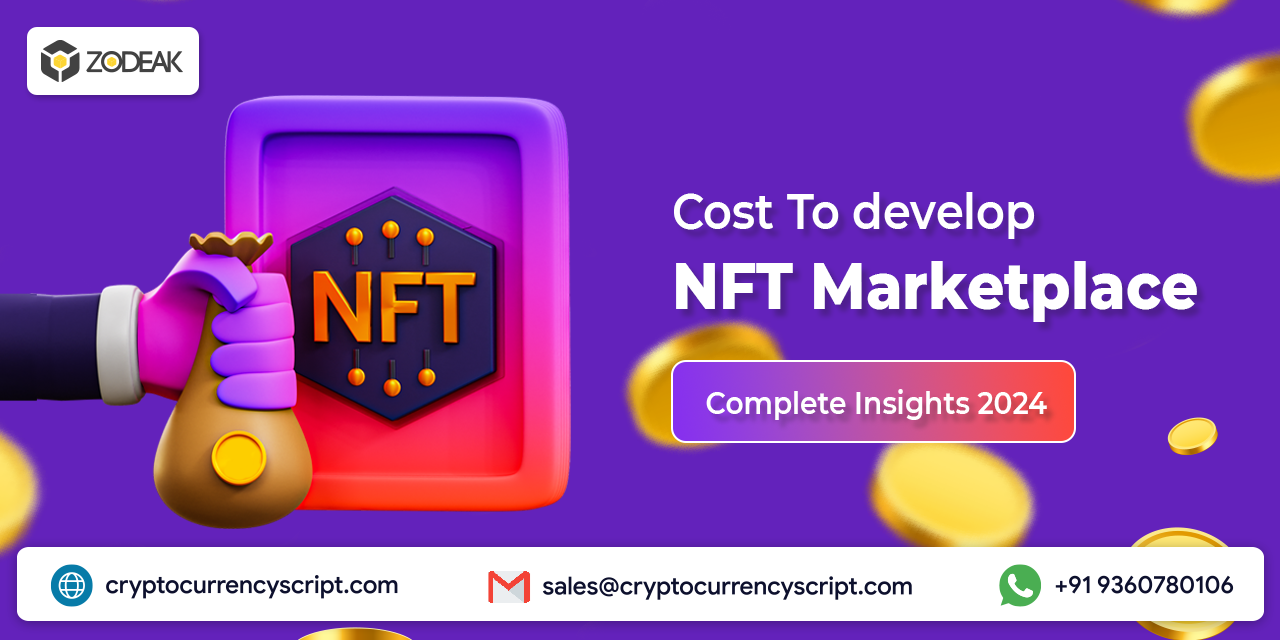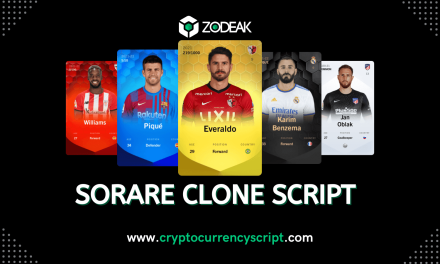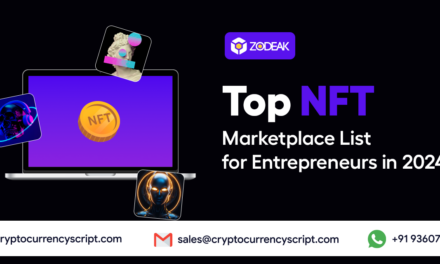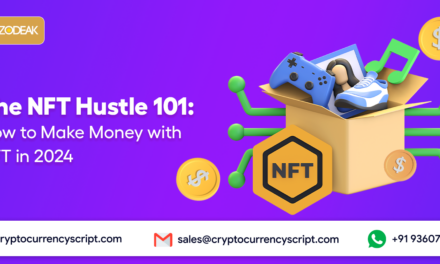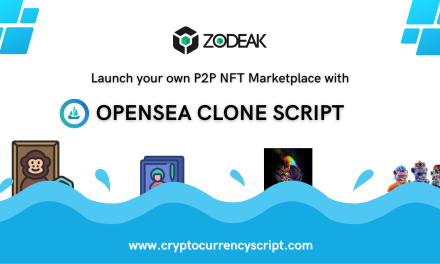The past decade of the crypto-based business has seen an unprecedented increase in the adoption of blockchain technology and smart contracts. Today, many businesses built around cryptocurrencies have grown accordingly and among these businesses, the cost to develop NFT marketplace has emerged as the best business niche.
As new technologies continue to transform our world, NFT marketplaces stand out as a promising avenue for startup founders. Each market offers a unique value proposition, making it important for prospective business owners to thoroughly explore their options.
In this blog, we will examine the important cost parameters related to the development of the NFT marketplace, by asking questions such as:
How much does NFT marketplace development cost?
What are the factors that influence the cost of developing an NFT marketplace?
How can one choose the best NFT marketplace software?
We explore these questions in more detail in the following discussion.
Cost To Develop NFT Marketplace
There are several factors involved in the NFT marketplace development that contribute to the cost of the overall business. Cost estimates consider many factors such as platform features, security measures, integration, and other requirements. The cost of developing an NFT market can vary depending on the complexity and size of the project.
For starters, the cost of developing an NFT market depends on the type of platform features required. For example, features such as user trust, smart contract integration, and web3 wallet integration are important features in the NFT market, potentially changing overall development costs Other features such as search filtering capabilities, user profiles, and social sharing functions cost can offer help.
Apart from features, security measures are another important factor that affects the cost of developing an NFT marketplace. It includes such as two-factor authentication, encryption, and secure data storage are essential to prevent attack attempts and protect user data Cost of security The implementation of this system may vary depending on the level of protection required.
Integration of Ethereum, Binance Smart Chain, and other blockchain networks is also important for the NFT market. The cost of integrating a blockchain network can vary depending on the complexity and size of the project.
Typically, NFT market development costs can range from $10,000 to $100,000 depending on the complexity and size of the project.
Factors Influencing NFT Marketplace Development Costs
Considering the development of an NFT marketplace platform, various factors may impact the costs associated with the project. In this regard, it is important to carefully evaluate these factors and determine how they may affect the development process.
Niche Selection
One of the key factors that may influence the development costs of an NFT marketplace is the niche selection. For instance, choosing between art, music, or sports niches may significantly impact development costs. This is because NFT marketplace platforms typically require more extensive development efforts, potentially increasing expenses.
Features and Functionality
Another significant factor that may affect the development costs of an NFT marketplace is the breadth and depth of features incorporated into the platform. Basic functionalities such as listing, bidding, and transaction management form the foundation of the platform. However, additional features such as advanced search options, auctions, and social integration may contribute to increased costs.
Software Integrations
The choice of software integrations is also an important factor to consider when evaluating the costs associated with developing an NFT marketplace. Integrating external applications, such as digital wallets, payment gateways, and blockchain protocols, adds complexity to the development process. The choice of integrations and their intricacies can impact both development time and expenses.
Design Elements
User experience (UX) and user interface (UI) design are key factors that determine how users interact with the platform. Intuitive navigation, visually appealing layouts, and seamless interactions enhance user engagement but may necessitate higher design costs.
Development Resources
The expertise of developers, project duration, and the number of resources allocated to the project directly affect development costs. Skilled developers proficient in blockchain technologies command higher rates, contributing to overall expenses. Therefore, it is important to carefully evaluate these factors to determine the most cost-effective approach to developing an NFT marketplace platform.
Selecting the Best NFT Marketplace Software
When considering an NFT marketplace solution, it is important to strike a balance between features and affordability. While cost considerations are crucial, it is equally important to prioritize quality, security, and scalability to ensure long-term viability. Here are some tips that may be helpful when selecting the best NFT marketplace solution:
Conduct Research and Comparison
Start by conducting thorough research to evaluate different marketplace solutions available in the market. Look for key features such as ease of use, availability of payment options, and transaction fees. Compare pricing plans and user reviews to identify the most suitable option for your requirements.
Scalability and Customization
Opt for a solution that offers scalability and customization options to accommodate future growth and adapt to evolving market trends. This is particularly important if you plan to expand your NFT platform business.
Security Measures
Security should always be a top priority when choosing an NFT marketplace solution. Prioritize platforms that implement robust security measures to safeguard user assets and data against cyber threats and vulnerabilities. Look for features such as two-factor authentication, SSL encryption, and secure storage of user data.
Community Support
Choose a platform with an active and supportive community, offering resources, documentation, and developer tools to facilitate seamless integration and troubleshooting. This can help you save time and resources while ensuring that you are always up-to-date with the latest developments in the market.
Demo and Trial
Take advantage of demo or trial versions offered by marketplace solutions to assess their functionality, user experience, and compatibility with your business objectives before making a final decision. This can help you evaluate the solution’s performance and identify any potential issues before committing to a long-term contract.
Final Thoughts
In conclusion, the cost to develop NFT marketplace presents many opportunities for entrepreneurs seeking to capitalize on the burgeoning market for digital assets. By understanding the cost components and factors influencing development, you can make informed decisions and choose a solution that aligns with your business goals.
Remember to prioritize quality, security, and scalability when selecting an NFT marketplace solution, and using the expertise of a reputable NFT marketplace development company to bring your vision to life. With the right approach, you can create a thriving NFT marketplace that resonates with users and drives sustainable growth in the market.

